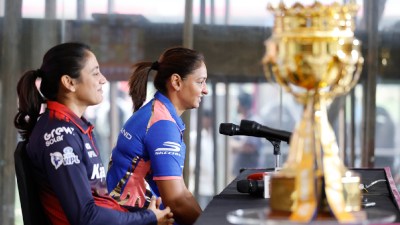Landmark Bill passed: truth defence in contempt
For the first time in the history of independent India8217;s judiciary, the law of contempt has been changed to make truth a 8220;valid de...

For the first time in the history of independent India8217;s judiciary, the law of contempt has been changed to make truth a 8220;valid defence.8221;
Moving the motion to pass the landmark Contempt of Courts Amendment Bill, 2004, in the Lok Sabha today, Law Minister H R Bhardwaj said the amendments would 8220;introduce fairness in procedure and meet the requirements of Article 21 right to life and liberty of the Constitution.8221;
The Bill amends the 1971 Act to include Section 13 B: 8220;The court may permit, in any proceeding for contempt of court, justification by truth as a valid defence if it is satisfied that it is in public interest and the request for invoking the said defence is bona fide.8221;
The amended Bill maintains the earlier standard as well: 8220;No court shall impose a sentence under this Act for a contempt of court, unless it is satisfied that contempt is of such a nature that it substantially interferes or tends substantially to interfere with the due course of Justice8221;.
Until now, truth could not be pleaded as a defence to a charge of contempt of court despite several commissions, legal experts and even judges arguing for it.
In fact, in its report in 1999, the National Commission to Review the Working of the Constitution headed by former Chief Justice of India Justice M N Venkatachaliah had recommended that it shall be open to the court to permit a defence of justification by truth. Welcoming the amendment, former Chief Justice of India Justice V N Khare told The Indian Express: 8220;Yes, truth is a valid defence. If a judge8217;s misconduct is proved, then truth should not only be allowed as defence but also should be taken up for initiating action against the errant judge.8221;
Incidentally, it was Justice Khare who had said in the open court in the Karnataka High Court sex scandal case: 8220;Truth is a defence for me8230;but please give us some evidence so that we can prima facie see if there was some basis for making these allegations of sex scandal involving the judges8221;. However, the reporters concerned could not lead any evidence.
In the amended Bill, it has been left to the judge to permit 8220;truth as defence8221; and also to decide whether it8217;s 8220;in public interest8221;. Justice Khare said it was wrong to have said that 8220;truth should be in public interest. For, a party can establish the truth against the misconduct of a judge even in his own interest.8221;
8220;There will be a debate on what public interest is,8221; said Justice Khare. 8220;Truth as defence should not be left to the judge8230;once a litigant leads evidence to a truth, then, it should be verified and if it is so, then necessary action should logically follow.8221;
The amendment bill was introduced during the NDA term in May 2003 and was referred to the a standing committee for examination. With the dissolution of the 13th Lok Sabha, the Bill lapsed and re-introduced by the current government. Ironically, when the Lok Sabha passed the Bill this morning, a Bill which re-defines contempt law, there were only 21 members present in the Treasury benches and nine in the Opposition.
The moment the bill was passed, Bhardwaj himself left the Lok Sabha fruther reducing the strength of the House. The only other minister present was P. Chidambaram.
|
Why this is historic and long overdue
|
||||
| nbsp; |
8226; Contempt of two types: civil, where a court order hasn8217;t been followed and criminal interference in administration of justice |
nbsp; | ||
- 01
- 02
- 03
- 04
- 05






























